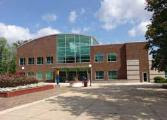by Julie McKay
With quality health care on the forefront of the public's mind, one of the most effective ways therapists can let their patients know that they care is through good rapport. The other night I met a medical doctor. We talked a little about what I do. He asked “Do you know what the most important thing a stethoscope was used for, besides listening to someone's lungs or heart?” I told him I didn't know. He said to touch someone and reassure them that they were being "heard." This is one way doctors can help build rapport with their patients.
But what about those who don't use stethoscopes in our practice? Such as massage therapists, bodyworkers, physical therapists, occupational therapists, chiropractors, acupuncturists and psychotherapists? How you communicate with your client is of utmost importance. When a client is lucky they will happen across a therapist with whom they will “hit it off.” But this does not happen all the time.
One day two clients told me that they really appreciated how well I listened to them and how comfortable it made them feel. This struck me as very interesting as each had very different personalities. Did I do anything different for one or the other? What had I done to have them make the same comment?
What I did was I listened to what communication style and processing languages they each spoke and “spoke” their language to build a rapport. This also helped me to assist them to get better in touch with what was occurring in their bodies.
These are skills that we can develop over time, if we happen to be paying attention to the appropriate thing at the right time. However, without training it can take years and years to hone these skills of building rapport with a variety of clients and helping them listen to what is going on in their body.
There is an easier way for you to learn how to identify what processing language and communication styles your clients speak. You can easily learn how to ask effective questions that are non-leading, non-judgmental that help your clients identify their needs. There are simple yet profound techniques that you can learn to use with your client to help them pay closer attention and identify what their body wants them to be aware of.
Two years ago, I had a couple of therapists ask me to do a study group about how they could learn how to more effectively dialogue with their clients. I wrote page after page of notes about what I do and what I pay attention to when I am dialoguing with clients. I realized that there was no one place to reference all of the simple concepts and techniques that I use. So I put it all together in a ground-breaking workshop called SomaCentric Dialoguing.
SomaCentric Dialoguing (SCD) is a system that focuses on communication skills and concepts to improve rapport with clients, to effectively focus the client's body-centered awareness and dialogue with the client and their body. SCD teaches the how to communicate with clients and help them get in touch with what is going on with their body. SCD gives therapists specific concepts of how to ask appropriate questions, what not to ask and thus provides a structure to dialoguing.
Whether you are a student or an experienced therapist, you will learn how to identify what languages your client speaks, her processing and communication styles. You learn how to speak her languages to build instant rapport and get information easily, at all points of interaction; from an initial phone call and scheduling of an appointment, during the client intake process and while she is on the table. You learn how to help her get beyond what the head or mind wants to say and assist her to be more body-centered. These simple and yet profound dialoguing techniques are used to help your client in her healing journey, helping her to effectively let go of holding patterns and pain in her body. This results in core physical, mental, and emotional healing, helping her to heal more deeply.
The next SomaCentric Dialoguing class will be held April 16 - 18, 2010 at CCBC Catonsville. For more information see www.ClearInstitute.net or call 443-604-1981. Suggested reading is The Insightful Body: Healing with SomaCentric Dialoguing by Julie McKay. Available online at www.ClearInstitute.net or your favorite bookseller.








